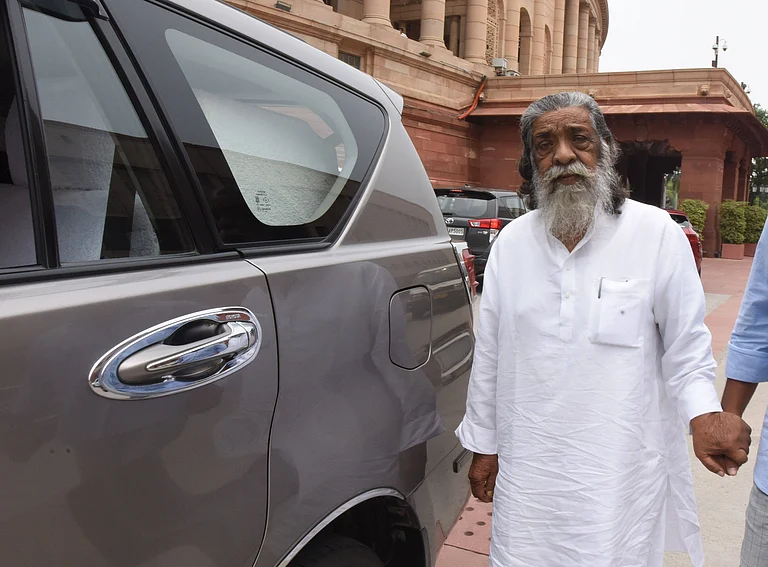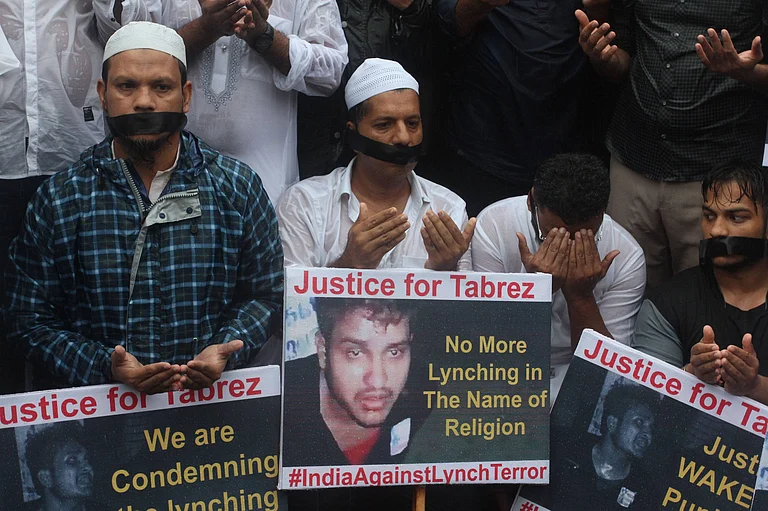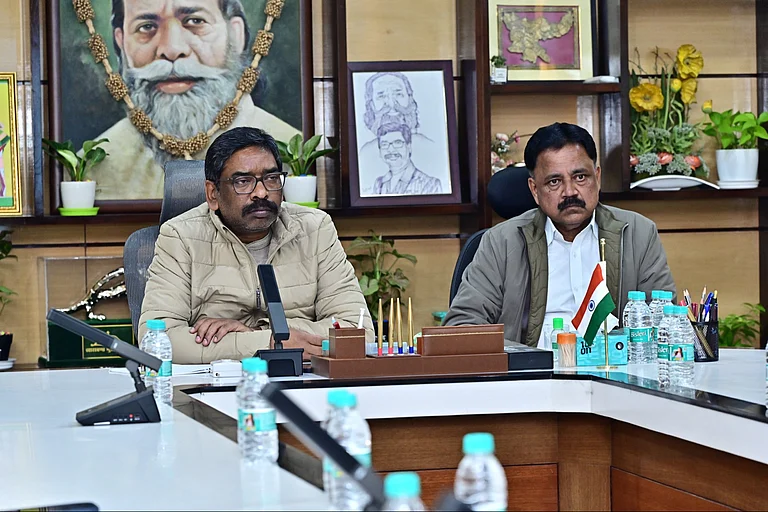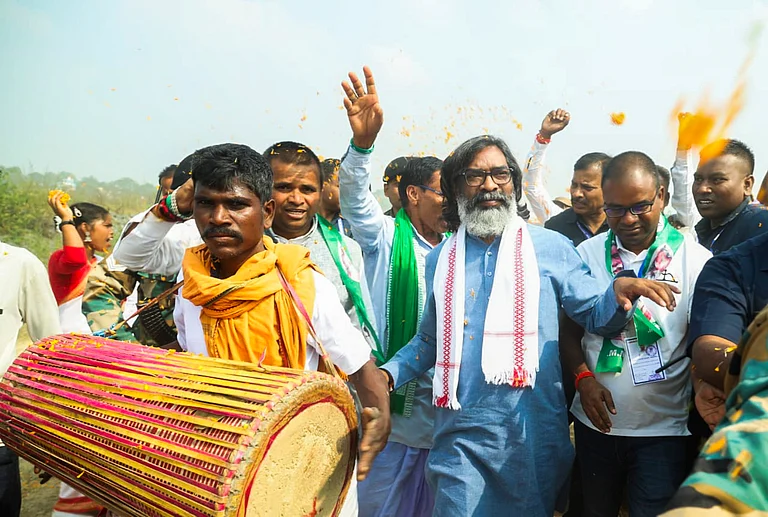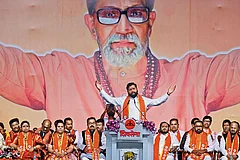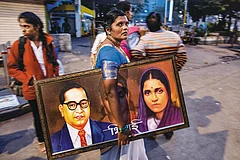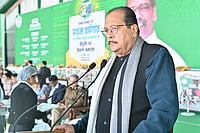The 24-minute speech by Hemant Soren on the floor of the Jharkhand Assembly on February 5, 2024, did not reveal, even for a moment, the political pressure he faced while he was in prison. For the confidence vote, he reached the assembly under the custody of the Directorate of Enforcement (ED); and through his aggressive speech, he continued his attack on the opposition. He said the Bharatiya Janata Party (BJP) was anti-tribal. This discussion reached outside the assembly as well as the villages. Hemant linked his arrest to a purported conspiracy hatched against tribals and alleged the collusion of the BJP government at the Centre and the governor of the state.
Arrested on January 31, 2024, in an alleged land scam case, the growth of his political stature triggered a debate once Hemant came out of prison on bail after five months. It seemed that his image had changed from being a tribal leader to a national leader. Though he inherited the political legacy of his father, Shibu Soren, he had to fight a long battle to create his political identity.
Hemant began his political journey without any political allegiance—either to the Left or the Right-wing parties. For it was more for the pleasure of power. He joined hands with the BJP to share power in 2010. Obviously, for him, ideology was never a barrier in politics. Ironically, the Jharkhand Mukti Morcha (JMM) was founded by Shibu Soren in 1973 with the support of the Left parties.
But today, there is a discussion about the new Hemant in political circles. His administration’s response to the COVID-19 pandemic and his five months in prison have brought out a stronger and a more mature image of Hemant who did not buckle under political pressure.

Senior journalist Faisal Anurag, who has a keen eye on the politics of Jharkhand, is of the view that a lot of maturity can now be seen in the new Hemant. “Of the three sons of Shibu Soren, Hemant is the most politically mature, when compared to the eldest son, late Durga Soren and the youngest son, Basant Soren. During the time Durga Soren was alive, his father Shibu Soren was politically very active and strong. That is why he did not have to face the challenges that Hemant had to face in the last five years. That was when Shibu Soren was not keeping well. Looking at Hemant’s tenure as chief minister and five months in jail, he never bowed down in front of his opponents. The way he has handled the party and the alliance is commendable,” says Anurag.
When the JMM and the Congress got a full majority in the assembly elections in 2019, Hemant became chief minister. However, the COVID-19 pandemic hit within a year and it took two years to deal with the grim situation. During this period, whether it was the issue of bringing migrant labourers through flights or special trains, Hemant was widely appreciated for his efforts.
Though Hemant could not deliver on the JMM’s manifesto promises on the ground, he was able to divert the attention of the people to other issues. Like the Sarna Code for religious identification, the Khatiyan Bill of 1932, mentioning the ‘indigeneity’ of a local and the Other Backward Classes (OBC) bill to increase reservations from 14 to 27 per cent. Though these decisions have not taken the shape of laws, Hemant was able to gain political mileage from these issues. On the other hand, he has consistently promised five lakh jobs or distribution of forest land to tribals. In response to questions on his failure to fulfil these promises, the Hemant government continues to blame the COVID-19 period and accuses the BJP of destabilising the government.
But the way Hemant and his party capitalised on his arrest with the issue of tribal identity has created a narrative among the tribals of Jharkhand. Ranjit Mahli, assistant professor at the Nilamber-Pitamber University in Medininagar, Jharkhand, believes that Hemant has been successful in linking the Sarna identity with indigeneity and the message has reached the tribal population. “Since the time Hemant knew about the possibility of his arrest, he sought the refuge of the Sarna tribe. He has been saying how the BJP government is not willing to give a religious identity to the Sarnas,” says Mahli.
The political ideology of Hemant is based on the religious identity of the tribals. He has also proved his ability to work with everyone in coalition politics.
This narrative was visible during the 2024 Lok Sabha elections in the state. While the BJP had won 14 and 12 seats during the 2014 and 2019 elections, respectively, it lost three seats in 2024. It is interesting to note that the three seats that the BJP lost were seats reserved for tribals. At present, all the five seats reserved for tribals in the state are held by the INDIA bloc—the JMM, the Congress and the Left parties. Of the 28 assembly seats reserved for tribals, 24 lie in these five Lok Sabha constituencies. It is obvious that if this narrative works in the assembly polls too, the BJP will be facing more trouble than it did in 2019. Interestingly, it is being said that the way Kalpana Soren, Hemant’s wife, has established herself in Jharkhand politics in the last six months has strengthened the party.
Hailing from the Santhal tribe, which is the most populous in the state, Hemant stepped into politics in 2003. He lost the Dumka seat in the 2005 assembly elections. He became a Rajya Sabha member in 2009. After a few months, he resigned and contested the Dumka seat in the assembly elections and won. Since no party could secure a majority, the JMM formed the government in alliance with the BJP in 2010 and Hemant became the deputy chief minister. After the BJP withdrew support, the JMM forged an alliance with the Congress and Hemant became the ninth chief minister of the state in 2013 at the age of 38 years.
Political experts say there are a number of differences between Hemant and his father. Shibu Soren started his political career as a revolt against oppression by middlemen, landowners and the rulers and merged his revolt into the politics of regionalism and demanded a separate state for Jharkhand. Shibu Soren had considered this to be a fight for a separate tribal identity. However, he never fought a direct battle for the tribals. The political ideology of Hemant, on the other hand, is based on the religious identity of the tribals. In five years, Hemant also proved his ability to work with everyone in coalition politics.
Sometimes the image of Hemant comes out as a strong yet clever and cunning leader, which contradicts his identity. While he plays with the identity card of the tribals, he can also be seen visiting temples and spending crores of rupees on the renovation of temples. Hemant reiterates that tribals are neither Hindus nor will they ever be Hindus. But his visits to temples prove that he wants to seek the confidence of non-tribals and non-minorities too.
MORE FROM THIS ISSUE
However, the fact remains that the empathy tribals have developed for Hemant since his release has become a matter of grave concern for the BJP. To counter his campaign, the saffron party had to send an army of 40 people, including the prime minister, home minister and five former chief ministers, to campaign in Jharkhand. Whatever be the electoral outcome, by demanding a separate Sarna Code for the tribals, Hemant has offered the larger issue of tribal identity before the voters.
(Translated by Kaveri Mishra)
(This appeared in the print as 'Search for a Narrative')








